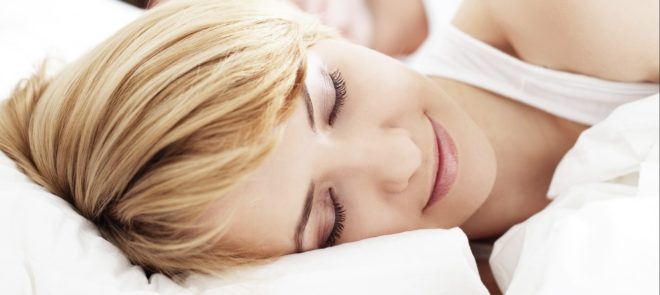![]()
Clinic News
Welcome to Troy -she has settled in really well and is a great addition to the team.We wish Andrew all the best in his new clinic and hope he will keep in touch. The arrival of the new clinic beds has also caused quite a stir and we thank Atlas clinical for their superb job in supporting us over the last few months to get them all made for us.
Marathon challenge ahead!
Sophie has been offered a charity place for next years London Marathon (April 2020). She will be raising money and running for the MS Trust, both in memory of her Mother-in-Law Linda; who died earlier this year as a result of her MS and to help a charity that is offering ongoing support for current sufferers of Multiple Sclerosis, including her cousin. There will be various fundraising activities in the run up to the Marathon starting with Sophie's social run -more details below.

Sophie\'s Lucky Dip 5k Social
Thursday, 12 September 2019; 18:30-20:30
Weir Field Recreation Ground (NG9 1LX)
Sophie is organising a social walk/jog/run for charity. Virtual Runner UK will kindly be providing medals in return for a donation (suggested minimum of £5) to MS Trust.
We are using the Beeston parkrun route and there will be cakes/treats to buy once you've finished (proceeds again going to the MS Trust).
If you want more information please search Facebook events (https://www.facebook.com/events/464947007671793/)
Hope to see you there!
If you are unable to attend but still want to make a donation please go to www.virginmoneygiving.com/SophieLondonMarathon2020

Mind Your Posture: Buying a bed
Chiropractors are often asked for advice on the selection of beds and
mattresses and, in truth, there is no one solution that suits all.
Choosing the right bed can minimise those factors that may lead to, or aggravate back pain. Research by the British Chiropractic Association in 2013 showed that of those experiencing back or neck pain, 30% said that their pain could be brought on by a night’s so-called ‘rest’.
We come in different weights, shapes and sizes, but have one thing in common; we spend more than a third of our lives in bed, so should choose our beds carefully.
Which is better, a hard or soft mattress? The best mattress is a ’supportive one‘. A 16 stone person sleeping on a mattress may not get the same support as a 10 stone person sleeping on the same mattress.
How do I know which is the right mattress for me? If you are lying on your side, your spine should be parallel to the mattress and your spine should not sag (bed too soft) or bow (bed too hard). The longer you can spend lying on a mattress before you buy it, the more accurate this feeling will be. Your pillow should be an extension of this i.e. your neck should be a continuation of
the straight spine and not too high or too low.
What about my partner? Always shop with your partner as your respective ideal mattress tensions could be very different. If this is the case, buy beds from a range that allow two single mattresses to be zipped together, so that you both get the support you need.
How do I know if my current bed/mattress needs replacing?
Can you feel the springs through the mattress?
If the answer is yes, it is definitely time to buy a new one.
Is the bed more that 10 years old?
If the answer is yes, consider purchasing a new one – beds wear out and
may sag or lose support with time.
What things can I do to help prevent back problems even with my new mattress?
Try and adopt a sleeping position which creates less physical stress on the back. For example, lying on your side is better than lying on your front with your neck twisted to one side.
Keep moving and avoid being in any one position for too long.
No matter how comfy the position may initially feel, the longer you stay in one position, the more this will ‘load joints’. If your partner moves around a lot at night, try separate beds for a while as your partner’s movement could aggravate YOUR back condition!
Drink water. Keep well hydrated; dehydration can make muscles ache.
Don’t leap out of bed first thing in the morning. After you have woken up wake up, try some gentle stretches.
Wake up your body. Once up, avoid bending or doing anything sudden or strenuous until you back wakes up!

Improving Balance and Co-ordination
Balance and co-ordination is an often overlooked part of fitness and should be trained as much as strength and endurance.
It is known that balance and co-ordination is controlled by several parts of the body, namely the eyes and the ears. These senses pass on the data it has gathered via the nerves to the muscles to appropriately move about gracefully. In older people though, these senses deteriorate and as a result, balance may worsen. Improving balance and co-ordination can benefit everyone, especially the elderly, to increase health and mobility.
There are many factors that may hamper one’s balance and co-ordination. The alignment of your neck, your spine, and your pelvis is one. Age and disease is another problem. For example, when your pelvis is misaligned, your body needs to compensate for that misalignment. Your neck may shift to one side to promote balance, but this, in turn, may cause you stiffness and neck pain.
Age and disease can also contribute to poor balance. With poor balance, the elderly are prone to slips and falls. It hinders mobility and lessens the overall quality of life. Diseases such as arthritis and osteoporosis can also hamper balance and co-ordination.
Exercise improves flexibility and strength and, through these, balance and co-ordination. Nutrition is another important aspect of a healthy life. Important nutrients for balance and co-ordination include sodium, calcium, potassium, and magnesium as they are needed in regulating nerve impulses and muscle activity. Without them, you would experience painful cramps. Blueberries in particular are a superfood that contains many nutrients for improving balance and co-ordination.
With the right exercise and nutrition you will increase your chance of living a full healthy life.
We treat all conditions that affect any muscle or joint in your body, from your head to your little toe! One of the most common complaints that we treat is back pain and Chiropractic is recommended by the government authority, the National Institute for Clinical Excellence (NICE) for acute and chronic back pain. Some of the other conditions that we treat are neck and headache, shoulder pain, leg and hip pain, knee and foot pain, sciatica and arthritis. Our registered Chiropractors all have at least five years of training. Treatment costs can be covered through most health insurers. If you are in any doubt, we are always very happy to talk with you on the phone to see if your condition will respond well to Chiropractic treatment. Call the clinic now to arrange an appointment time that works for you. 0115 9225085 If you would like to opt-out of receiving these newsletters please follow the unsubscribe link below, email alex@beestonchiropractic.co.uk or let us know at your next appointment.



